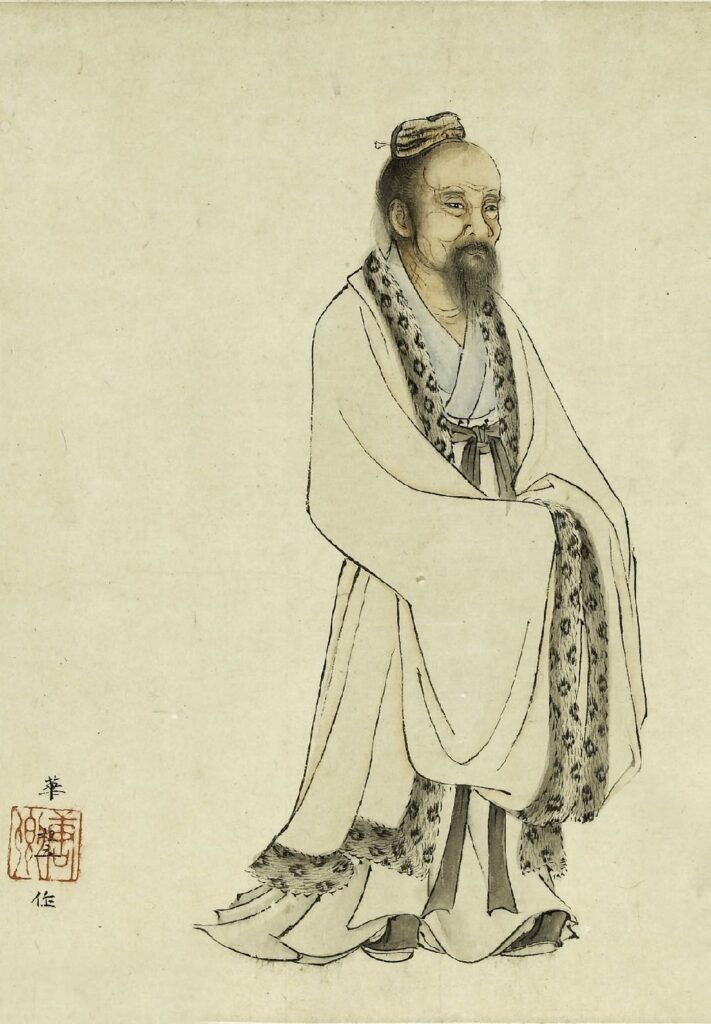Argument:—Life too short—Wisdom unattainable—Accommodation to circumstances—Liberty paramount—Death a release—The soul immortal.
Prince Hui’s cook was cutting up a bullock. Every blow of his hand, every heave of his shoulders, every tread of his foot, every thrust of his knee, every whshh of rent flesh, every chhk of the chopper, was in perfect harmony,—rhythmical like the dance of the Mulberry Grove, simultaneous like the chords of the Ching Shou.
“Well done!” cried the Prince. “Yours is skill indeed.”
“Sire,” replied the cook; “I have always devoted myself to Tao. It is better than skill. When I first began to cut up bullocks, I saw before me simply whole bullocks. After three years’ practice, I saw no more whole animals.
“And now I work with my mind and not with my eye. When my senses bid me stop, but my mind urges me on, I fall back upon eternal principles. I follow such openings or cavities as there may be, according to the natural constitution of the animal. I do not attempt to cut through joints: still less through large bones.
“A good cook changes his chopper once a year,—because he cuts. An ordinary cook, once a month,—because he hacks. But I have had this chopper nineteen years, and although I have cut up many thousand bullocks, its edge is as if fresh from the whetstone. For at the joints there are always interstices, and the edge of a chopper being without thickness, it remains only to insert that which is without thickness into such an interstice.
“By these means the interstice will be enlarged, and the blade will find plenty of room. It is thus that I have kept my chopper for nineteen years as though fresh from the whetstone.
“Nevertheless, when I come upon a hard part where the blade meets with a difficulty, I am all caution. I fix my eye on it. I stay my hand, and gently apply my blade, until with a hwah the part yields like earth crumbling to the ground. Then I take out my chopper, and stand up, and look around, and pause, until with an air of triumph I wipe my chopper and put it carefully away.”
“Bravo!” cried the Prince. “From the words of this cook I have learnt how to take care of my life.”
from Chapter III of Chuang Tzu, courtesy Gutenberg project.

Chuang Tzu (also Zhuang Zhou or Zhuangzi, literally “Master Zhuang”) was an influential Chinese philosopher who lived around the 4th century BCE in a period of great development in Chinese philosophy, the Hundred Schools of Thought. He is credited with writing—in part or in whole—a work known by his name, the Chuang Tzu or Zhuangzi, which is one of the two foundational texts of Taoism, alongside the Tao Te Ching.
Image courtesy Hua Zili , Wikimedia Commons.
Taoism is a diverse philosophical and religious tradition indigenous to China, emphasising harmony with the Tao (way, road, path or technique). Taoist thought has informed the development of various practices within the Taoist tradition and beyond, including forms of meditation, astrology and feng shui. A common goal of Taoist practice is self-cultivation, a deeper appreciation of the Tao, and more harmonious existence. Taoist ethics emphasise such virtues as effortless action, naturalness, simplicity, and the three treasures of compassion, frugality and humility.
